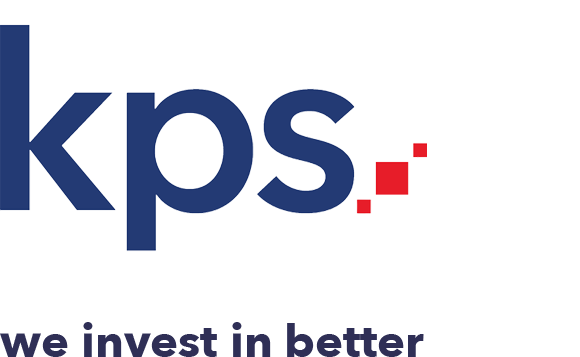Overview
Terms of Reference of The Board Audit Committee

INTRODUCTION
The Board Audit Committee (“BAC” or “Committee”) Terms of Reference (“TOR”) aims to set out the terms of the conduct of the Committee with respect to its delegated responsibilities to assist the Board of Directors (“Board”) in fulfilling the Board's fiduciary responsibilities of monitoring the Kumpulan Perangsang Selangor Berhad (“KPS Berhad” or “Company”) and its operating subsidiaries (“KPS Berhad Group”) management of financial risk processes, and accounting and financial reporting practices and development & effectiveness of the internal controls and governance systems based on the Main Market Listing Requirements (“MMLR”) of Bursa Malaysia Securities Berhad (“Bursa Securities”), Malaysian Code on Corporate Governance (“MCCG”) of Securities Commission Malaysia.

OBJECTIVES
The primary objective of the BAC is to assist the Board in the effective discharge of its statutory and fiduciary, which includes overseeing the integrity of the KPS Berhad Group’s financial reporting and accounting functions, and system of sound internal controls and corporate governance.

ASPECTS
- Constitution
- Secretary of the Committee
- Reporting
- Ethics & Procedures
- Review of the Terms of Reference

SCOPE
Membership
- The BAC shall be appointed by the Board amongst the Directors of the Company shall comprise no fewer than three (3) members.
- The members of the BAC must be Non-Executive Directors of which all of whom shall be Independent Non-Executive Directors of the Company.
- At least one (1) member must be a member of the Malaysian Institute of Accountants (MIA) or or shall fulfil such other requirements as prescribed in the MMLR of Bursa Securities.
- The Chairman of the BAC shall be an Independent Director appointed by the Board, who is not the Chairman of the Board.
- No alternate Director of the Board shall be appointed as a member of the BAC.
- Any former key audit partner must have observed a cooling-off period of at as stipulated by Malaysian Institute of Accountants By Law before being eligible for appointment as a BAC member.
- The BAC members may relinquish their membership in the BAC with prior written notice to the Secretary. If a member of the BAC resigns or for any reason ceases to be a member of the BAC resulting in non-compliance pursuant to the requirement under the MMLR of Bursa Securities, then the Board shall within three (3) months must fill the vacancy.
Authority:
- The BAC is fully authorised by the Board to independently investigate without interference from any party any activity within its TOR as follows:
- Full and unrestricted access to any information pertaining to the Company and the Group;
- Direct communication channels with both the External Auditors and Internal Auditors;
- Full access to any employee or member of the management; and
- The resources which are required for the BAC to perform its duties.
- The BAC is also authorised by the Board to obtain external legal other independent professional advice that is considered necessary and reasonable for the performance of its duties.
Roles & Responsibilities:
The BAC is to be provided with sufficient resources to undertake its duties. In fulfilling its primary objectives, the Committee will need to undertake inter-alia the following functions:
- To review and discuss with the External Auditors the nature and scope of their Audit Plans, their evaluation of the System of Internal Controls, their Reports and findings, and their Management Letter as well as Management’s response;
- To discuss problems and reservations arising from the interim and final audits and any matter the Auditors may wish to discuss (in the absence of Management, where necessary).
- To report regularly to the Board issues and concerns discussed during their meetings including those raised by the External Auditors and where appropriate, make necessary recommendations to the Board;
- To review the Quarterly Results and year-end Financial Statements of the Company and the Group prior to submission to the Board and Bursa Malaysia, focusing particularly on changes in accounting policies and practices, significant audit adjustments, going concern assumptions, and compliance with accounting standards and other legal requirements;
- To review the BAC report and Statement on Risk Management and Internal Control (“SORMIC”) prior to approval for publication in the Company’s Annual Report;
- To review and deal with any related party transaction and conflict of interest situation that may arise within the Company or the Group including any transaction, procedure or course of conduct that raises questions of management integrity;
- To refer matters for investigation to the Integrity and Governance Unit (“IGU”) in the manner set out in 6.1.11 c) below. Any such investigation shall be instituted and carried out by the IGU and shall be reported to the Board;
- To review and deal with any letter resignation from the external auditors and whether there is reason (supported by grounds) to believe that the external auditor is not suitable for re-appointment;
- To recommend the nomination of a person or persons as external auditors;
- To verify the allocation of the Employees Share Option Scheme (“ESOS”) as being in compliance with the criteria set by the ESOS Committee and in compliance with the ESOS By-Laws at the end of each financial year;
- In relation to the internal audit function, the BAC are to perform the following:
- To review the adequacy of the scope, functions and resources of the Internal Audit Department (“IAD”) and ensure that it has the necessary authority to carry out its work and monitor and review the effectiveness of the Company’s internal audit function;
- To review the Internal Audit Programme and results of the internal audit process (including reviewing and dealing with any audit findings from IAD) and, where necessary, ensure that appropriate actions are taken on the recommendations of the IAD;
- If it is considered that an investigation is warranted in connection with any audit findings that relate to corruption/bribery, abuse of power, malpractice, misappropriation, potential misconduct and/or violation of code & ethics, the approval of the BAC Chairman is required for submission, once approved by the BAC Chairman, shall be instituted, and carried out investigation by the IGU and shall reported to the Board;
- To review any appraisal or assessment of the performance of members of the IAD;
- To approve any appointment or termination of senior staff members of the IAD;
- To take cognizance of resignations of Internal Audit staff members and provide the resigning staff member an opportunity to submit his reasons for resigning; and
- IAD shall have a session with the BAC without the presence of Management at least once a year.
- To establish policies and procedures to assess the suitability and independence of External Auditors; and
- To consider other related matters, as defined by the Board.
Meetings
- Frequency
- The BAC meetings shall be held at least four (4) times a year. Additional meetings may be held upon request by any BAC member, the Management, Internal or External Auditors or should circumstances require.
- The BAC may invite any Board members or any member of the Management or any relevant employee within the Group who the BAC deems fit to assist in resolving and clarifying matters.
- The BAC shall meet at least twice a year with the External Auditors to discuss any matter with the BAC without the presence of members of the Executive Board or Management.
- Notice and Agenda
The Company Secretary shall be responsible for the preparation of the notice and agenda of the meeting in consultation with the Chairman of BAC or the Managing Director /Group Chief Executive Officer of KPS Berhad (“MD/GCEO”) and distribution of the meeting papers progressively to all the members at least five (5) business days before BAC meetings.
- Quorum
- The quorum for a BAC meeting shall be three (3) members, with the majority of members present being Independent Directors.
- At all meetings of the BAC, the Chairman of the Committee, if present, shall preside. In the absence of the BAC Chairman, the members present at the meeting shall elect a Chairman from amongst them to chair the meeting, who shall be an Independent Director.
- Meeting Mode
A meeting shall normally be conducted face-to-face to enable effective discussion, however, meetings may also be conducted via telephone conferencing, video conferencing or other appropriate means as determined by the BAC.
- Voting
- In the case of an equality of votes, the Chairman of the meeting shall have a second or casting vote.
- A BAC member is required to abstain from deliberations and vote in respect of any matter which may give rise to an actual or perceived or potential conflict of interest situation.
- The BAC may from time to time and if deemed appropriate, consider and approve and/or recommend relevant matters via a Circular Resolution in writing, in lieu of formally convening a meeting. The Circular Resolution shall be as valid and effectual as if it has been passed by a meeting of the BAC duly convened. Approval of the BAC obtained by a BAC Circular Resolution must be signed or approved by all the BAC members being Independent Directors subject to 8.5.2.
- Minutes of Meeting
- The Company Secretary to ensure proceedings of meetings are to be recorded the deliberations and decisions of the BAC and the minutes of the meetings are to be circulated to the BAC in a timely manner.
- The minutes of the BAC shall be approved by the Chairman of the meeting at which the proceedings are held or by the Chairman of the next succeeding meeting.
- The copies of the minutes of each BAC meeting shall be distributed to all members of the BAC and Heads of the Finance and Internal Audit Departments to ensure proper key actions are acted upon.
- The BAC Chairman shall update the Board on the matters discussed or undertaken by the BAC at the Board quarterly meetings.




